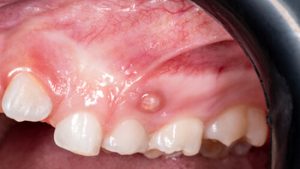How to Reverse Periodontal Disease Naturally: A Friendly Guide to Healthier Gums
Jul 24

Periodontal disease, also known as gum disease, is one of the most common oral health conditions in adults. It starts quietly with symptoms like bleeding gums, mild gum inflammation, or a bit of gum recession, but if left untreated, it can lead to serious problems such as tooth loss and damage to the soft tissue and bone that support your teeth.
The good news? If caught early, there are ways to reverse periodontal disease naturally, without invasive procedures. This article will walk you through how to reverse periodontal disease naturally using a combination of good oral hygiene, natural remedies, and lifestyle changes. Let’s explore what works and how you can regain optimal oral health.
Understanding Periodontal Disease
What exactly is periodontal disease?
Periodontal disease is a progressive infection of the gum tissue that surrounds and supports your teeth. It often starts with poor oral hygiene, leading to plaque buildup. If not removed, plaque can harden into tartar, which irritates the gums and causes inflammation. Over time, this inflammation can damage the connective tissues and bone.
What are the early signs to look for?
Catching gum disease early is key to reversing it naturally. Look out for:
- Bleeding gums during brushing or flossing
- Swollen or inflamed gums
- Persistent bad breath
- Receding gums
- Loose teeth
- Sensitivity along the gum line
If you notice any of these, it may be time to make a few changes to support your gum health.
Start with Excellent Oral Hygiene
Brushing and flossing properly
The cornerstone of reversing gum disease naturally is proper oral hygiene. Brush your teeth at least twice daily with fluoride toothpaste, and use a soft-bristled toothbrush to avoid further gum irritation. Don’t forget to floss daily to remove food particles and plaque between the teeth.
Rinse your mouth with natural solutions
Consider using a saltwater rinse to reduce inflammation and kill bacteria. Mix half a teaspoon of salt in a cup of warm water, swish for 30 seconds, and spit it out. This can soothe inflamed gums and support healing.
You can also make an antibacterial mouthwash using essential oils like tea tree oil, which is known for its antimicrobial properties. A few drops in a glass of warm water can help reduce bacterial growth and promote gum healing.
Try Natural Remedies for Gum Healing
Tea tree oil
Tea tree oil has strong antibacterial and anti-inflammatory properties. When used carefully, it may help reduce gum inflammation and plaque. Add a drop to your toothpaste or dilute with water for a gentle rinse, but avoid swallowing.
Aloe vera gel
Pure aloe vera gel is known for its soothing and healing properties. Apply a small amount directly to inflamed gums to help reduce swelling and support tissue repair.
Oil pulling
This traditional Ayurvedic practice involves swishing oil, usually coconut or sesame oil, in your mouth for about 15 to 20 minutes before spitting it out. Oil pulling helps remove toxins and reduce bacterial buildup along the gum line. It may also improve overall oral hygiene and leave your mouth feeling fresher.
Nourish Your Body with a Healthy Diet
Eat for gum health
A healthy diet rich in vitamins and minerals plays a major role in maintaining optimal oral health. Choose:
- Leafy greens and crunchy vegetables for fiber
- Citrus fruits are rich in vitamin C, which strengthens gum tissue
- Green tea for its anti-inflammatory and antimicrobial effects
- Nuts, seeds, and whole grains for healthy fats and minerals
Avoid sugary snacks and processed foods that promote plaque buildup and increase the risk of tooth decay and gum infections.
Quit Smoking and Reduce Alcohol Intake
Smoking is a major risk factor for gum disease. It lowers your immune response and makes it harder for your gums to heal. Quitting smoking can significantly improve your chances of reversing gum disease naturally.
Likewise, excessive alcohol can dry out your mouth, reduce saliva flow, and disrupt the natural bacterial balance, leading to poor gum health.
Strengthen Your Immune System
Your body’s ability to fight off infections, including gum disease, depends heavily on a strong immune system. Support it by:
- Getting adequate sleep
- Managing stress levels
- Exercising regularly
- Staying hydrated
- Eating a nutrient-rich diet
A healthy immune system works hand in hand with your oral hygiene efforts to kill bacteria and promote healing.
Maintain a Consistent Routine
Stick to your oral hygiene habits
Reversing gum disease is not a one-time fix. Consistency is key. Establish a daily routine and stick with it: brush, floss, rinse, and repeat.
Schedule regular dental cleanings
Even if you’re using natural methods at home, professional help is still important. A regular dental cleaning removes tartar that can’t be eliminated by brushing alone. It also gives your dentist a chance to catch gum disease before it progresses to a more severe stage.
When to Seek Professional Treatment
Natural methods are most effective during the early stage of gum disease. If you’re experiencing symptoms like:
- Persistent bleeding gums
- Gum recession that exposes the roots
- Deep pockets between your teeth and gums
- Loose or shifting teeth
…it may be time to consider periodontal treatment from a dental professional. Severe gum disease left untreated can lead to permanent damage and may require more advanced intervention.
FAQs About Reversing Periodontal Disease Naturally
Can mild gum disease be reversed naturally?
Yes. With excellent oral hygiene, a healthy diet, and natural remedies like saltwater rinses, tea tree oil, and aloe vera, early gum disease (also called gingivitis) can often be reversed at home.
How long does it take to improve gum health?
With consistent care, you may begin to see improvement in your gum health within a few weeks. Signs such as reduced bleeding and inflammation are positive indicators. However, full recovery may take several months, depending on the severity.
Is it safe to use essential oils in the mouth?
Yes, but always dilute essential oils like tea tree, clove, or peppermint in water or a carrier oil before use. Never swallow them, and consult your dentist if you’re unsure about dosage or application.
Can green tea really help with gum disease?
Green tea is rich in antioxidants and has anti-inflammatory properties that may help reduce gum inflammation and support healing. Drinking it regularly can be a helpful part of your oral care routine.
What vitamins are important for gum health?
Vitamin C is essential for collagen production and gum tissue repair. Vitamin D and calcium help support bone health. Including these in your diet supports your efforts in reversing gum disease.
Final Thoughts: Healing Gums Starts at Home
Periodontal disease might sound intimidating, but with the right combination of good oral hygiene practices, natural remedies, and healthy lifestyle changes, you can support your body in reversing gum disease, especially in its early stages.
Take action at the first signs, be gentle with your gums, and treat your oral health as an important part of your overall well-being. If you do that, you’re already well on your way to maintaining healthy gums and a confident smile for life.
References:
https://www.medicalnewstoday.com/articles/242321
https://my.clevelandclinic.org/health/diseases/21482-gum-periodontal-disease
https://www.healthline.com/health/dental-and-oral-health/gingivitis-home-remedy
https://pmc.ncbi.nlm.nih.gov/articles/PMC10630018/
https://www.ebsco.com/research-starters/complementary-and-alternative-medicine/natural-treatments-periodontal-disease



